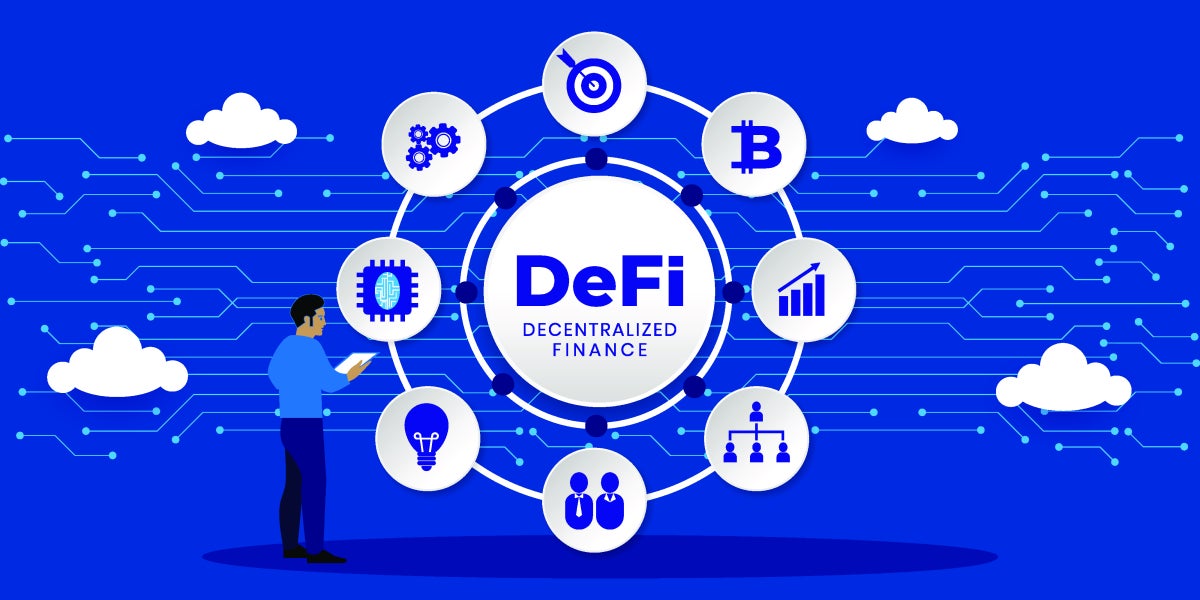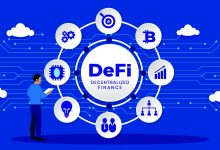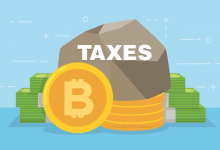What is Decentralized Finance and How Does it Works?

Index Of The Blog
Decentralized finance (DeFi) is a new and rapidly growing sector of the cryptocurrency industry that aims to transform traditional financial systems by creating open, decentralized networks that allow for the creation and exchange of financial products and services. In this blog, we will explore the basics of DeFi, how it works, and its potential implications for the future of finance.
What is Decentralized Finance?
Decentralized finance (DeFi) is a system of financial products and services that operate on decentralized, open-source blockchains, such as Ethereum. Unlike traditional financial systems, DeFi does not rely on centralized institutions, intermediaries or authorities. Instead, DeFi uses smart contracts and decentralized applications (dApps) to automate financial transactions and provide financial services to anyone with an internet connection.
DeFi enables users to borrow, lend, trade, and exchange cryptocurrencies, stablecoins, and other digital assets without the need for intermediaries, such as banks or other financial institutions. Additionally, DeFi allows users to participate in decentralized governance by voting on important decisions that affect the development and operation of the network.
How does Decentralized Finance Work?
DeFi operates on blockchain networks, which are open, decentralized, and secure digital ledgers that allow for transparent and immutable transactions. The most popular blockchain for DeFi is Ethereum, which supports smart contracts – self-executing contracts that automatically enforce the terms of an agreement between two parties.
DeFi dApps are built on top of the Ethereum blockchain and operate using smart contracts. These dApps provide various financial services such as lending, borrowing, trading, and exchanging digital assets. DeFi protocols are designed to be interoperable, meaning they can communicate with each other and exchange data and assets seamlessly.
Decentralized exchanges (DEXs) are a key component of DeFi. DEXs allow users to trade cryptocurrencies and other digital assets without relying on centralized exchanges. These exchanges use smart contracts to execute trades and to ensure that the terms of the transaction are met. Popular DEXs include Uniswap, Sushiswap, and PancakeSwap.
Another important aspect of DeFi is decentralized lending and borrowing protocols. These protocols allow users to lend and borrow digital assets without intermediaries, using smart contracts to enforce the terms of the loan. Users can earn interest by lending their digital assets to borrowers, and borrowers can use these loans to finance their projects or invest in other digital assets.
Decentralized stablecoins are also a significant development in DeFi. Stablecoins are digital assets that are pegged to a stable asset, such as the US dollar, to minimize price volatility. Decentralized stablecoins, such as DAI, are issued on DeFi platforms and are backed by collateral in the form of other digital assets.
Benefits and Risks of Decentralized Finance
Decentralized finance has the potential to transform traditional financial systems by creating a more open, transparent, and accessible financial system. DeFi protocols can provide financial services to anyone with an internet connection, without relying on intermediaries or authorities. Additionally, DeFi can facilitate financial inclusion by providing access to financial services to individuals who are underserved or excluded by traditional financial systems.
However, DeFi also poses risks, particularly with regard to security and regulatory compliance. The decentralized nature of DeFi means that there is no central authority or intermediary to protect users from fraud, scams, or hacking attacks. Additionally, the regulatory status of DeFi is unclear, and it is possible that governments could seek to regulate or restrict the use of DeFi platforms.
Rise of Decentralized Finance

Decentralized Finance (DeFi) has seen a massive rise in popularity and usage in recent years, with total value locked (TVL) in DeFi protocols reaching over $100 billion as of May 2023. This growth has been driven by a number of factors, including the increasing adoption of cryptocurrencies and the growing demand for decentralized financial products and services.
One of the primary drivers of the rise of DeFi has been the increasing adoption of cryptocurrencies. As more people begin to use cryptocurrencies, they are looking for ways to put their digital assets to work, whether through trading, investing, or earning interest. DeFi protocols offer a wide range of financial services that allow users to do just that, including decentralized exchanges, lending platforms, and yield farming.
Another factor driving the rise of DeFi has been the growing demand for decentralized financial products and services. Traditional financial systems are often seen as slow, inefficient, and expensive, with high fees and limited access for many people. DeFi, on the other hand, offers a more open and accessible alternative, with lower fees and greater transparency.
Additionally, DeFi has been fueled by the growing interest in blockchain technology and the potential it offers for decentralization and innovation. DeFi protocols are built on blockchain networks, which provide a secure and transparent way to conduct financial transactions without relying on intermediaries.
The growth of DeFi has also been driven by the increasing sophistication of DeFi protocols and the growing ecosystem of DeFi projects and platforms. This has led to a wide range of new financial products and services, including decentralized derivatives, insurance, and prediction markets.
However, the rise of DeFi has also brought with it a number of challenges and risks. One of the primary concerns is the security of DeFi protocols, as they are often subject to hacking attacks and other forms of exploitation. Additionally, there are concerns around the regulatory status of DeFi, as many governments are still grappling with how to regulate and oversee these decentralized networks.
Despite these challenges, the rise of DeFi shows no signs of slowing down, with more users and institutions becoming involved in the space every day. As the DeFi ecosystem continues to evolve and mature, it has the potential to transform traditional financial systems and create a more open, accessible, and decentralized financial future.
Conclusion
In conclusion, decentralized finance (DeFi) is a rapidly growing sector of the cryptocurrency industry that has the potential to transform traditional financial systems. By using blockchain technology and smart contracts, DeFi offers an open, transparent, and accessible financial system that allows users to borrow, lend, trade, and exchange digital assets without relying on intermediaries or authorities.
The rise of DeFi has been driven by a number of factors, including the increasing interest in cryptocurrencies, the desire for more accessible and open financial systems, and the potential for higher returns. However, there are also risks associated with DeFi, such as security and regulatory concerns, that need to be addressed.
Despite these risks, the potential benefits of DeFi are driving significant adoption and growth in this sector. As more people look for ways to access financial services that are more open, transparent, and accessible, DeFi has the potential to transform the financial industry and provide new opportunities for individuals and businesses around the world.


